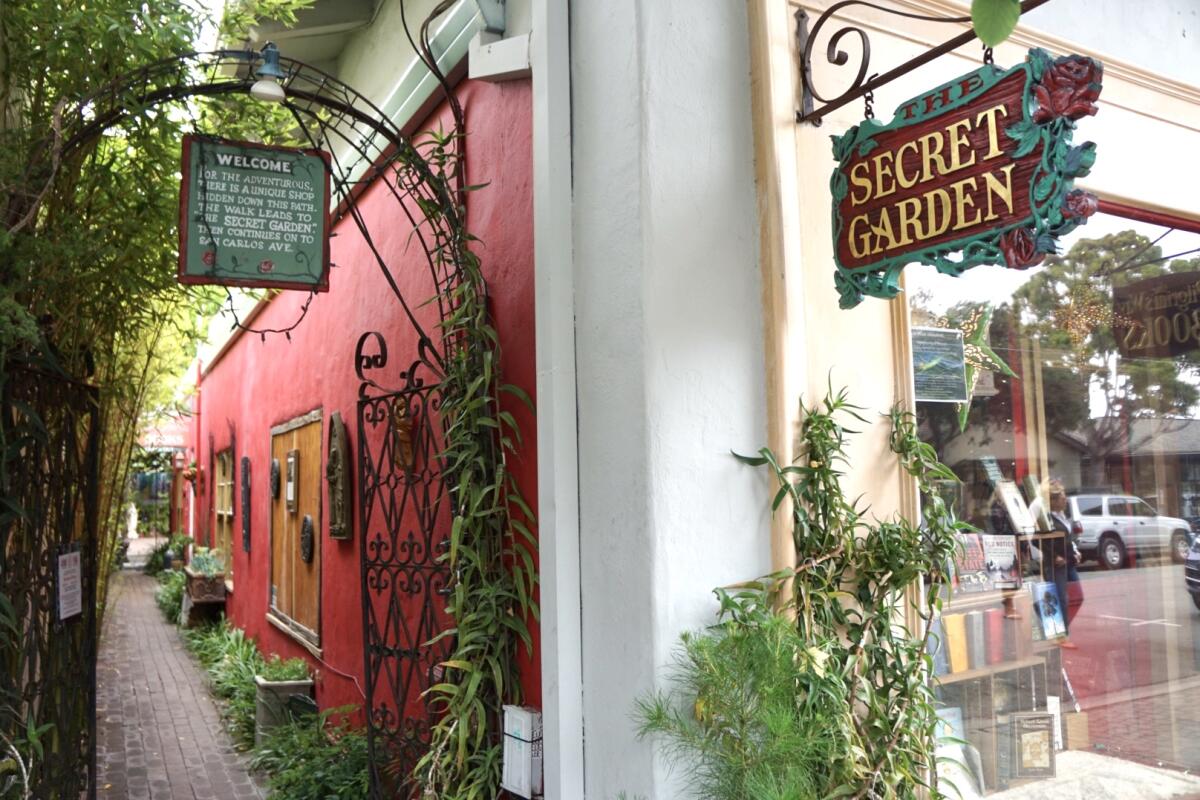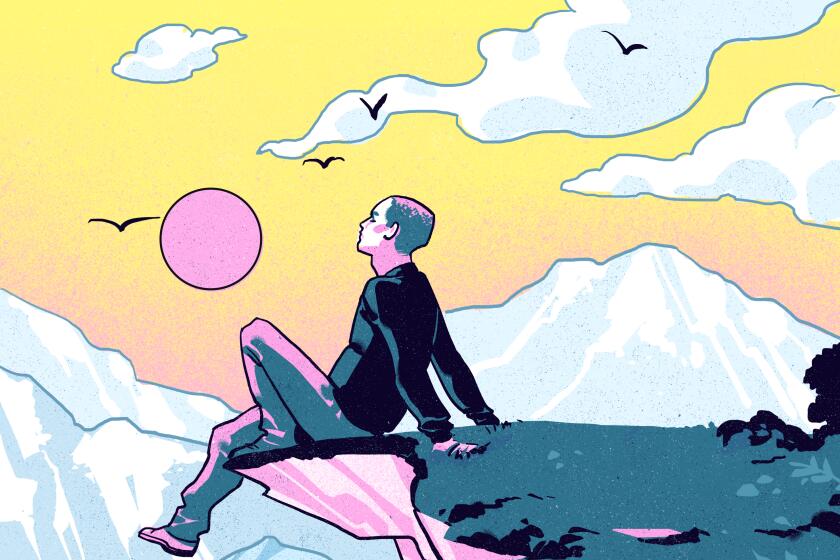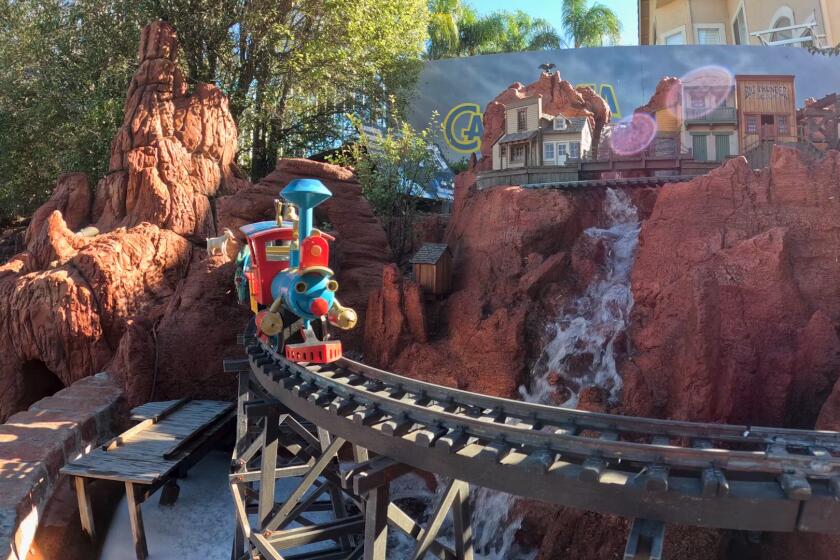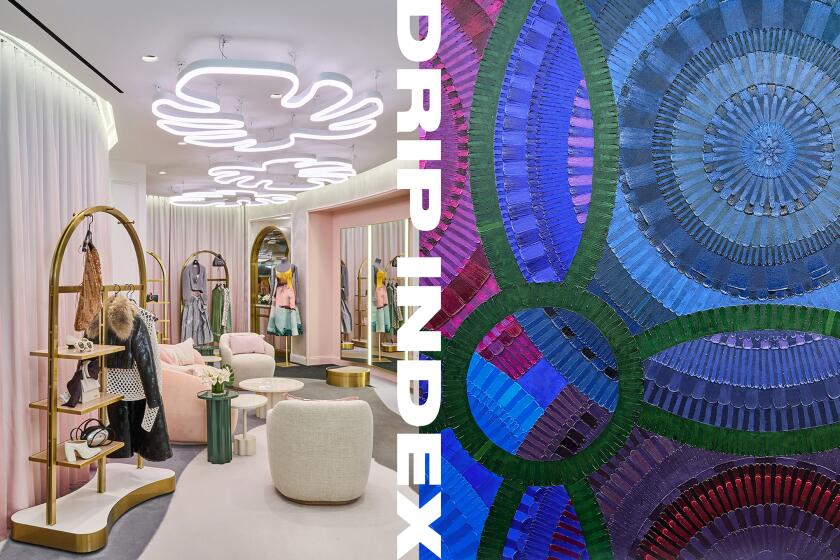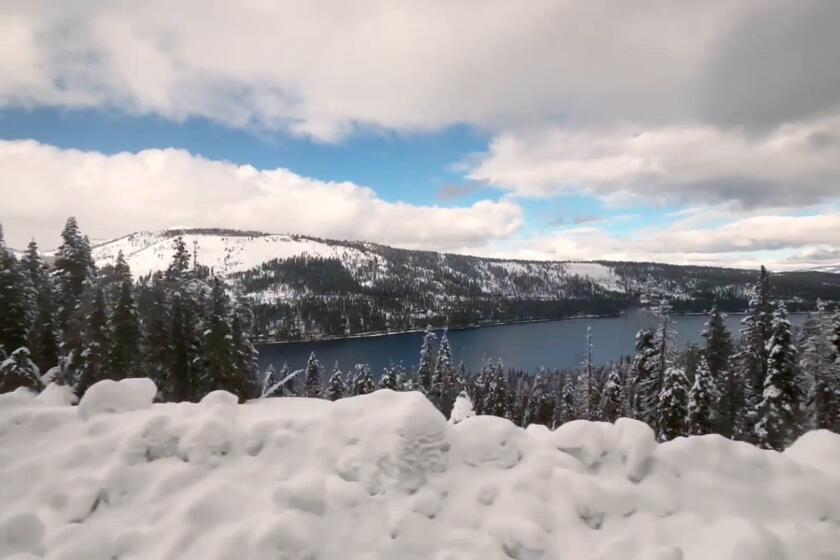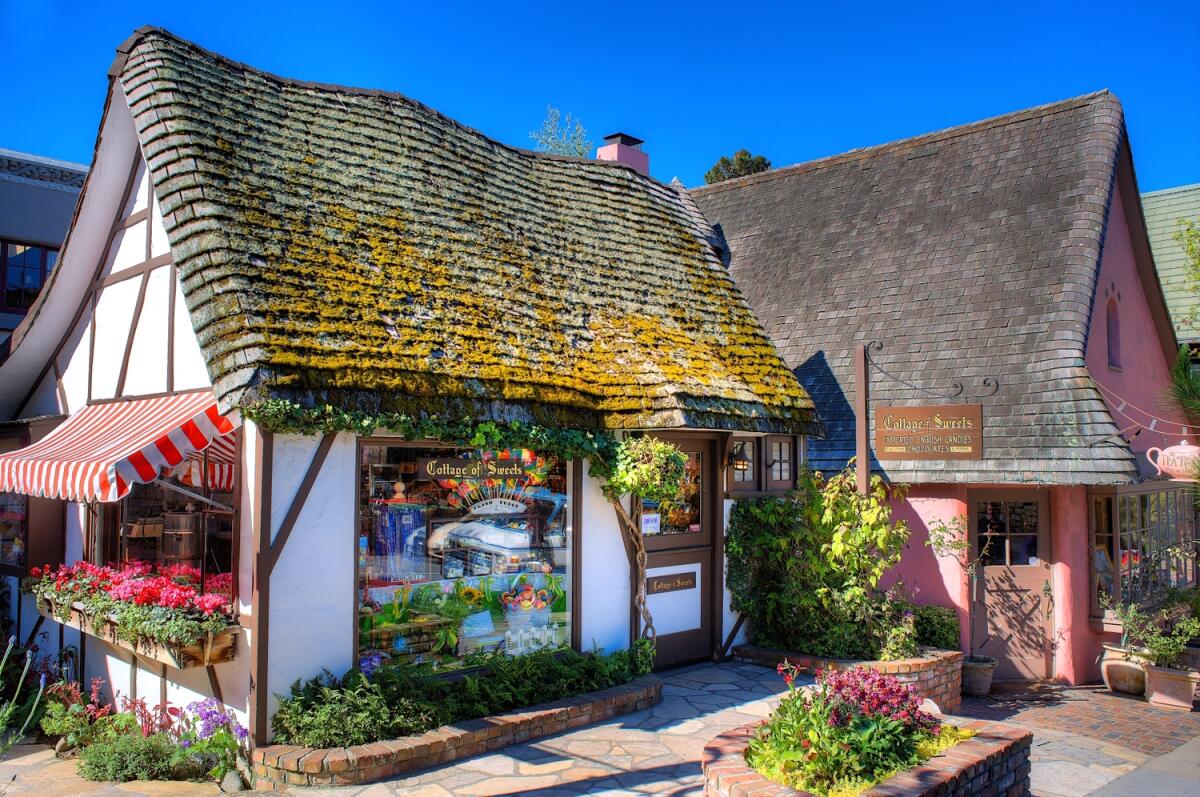
18 things to do in Carmel, California’s enchanting storybook village by the sea
The fairytale-like Carmel-by-the-Sea is a place where, for the last 107 years, the only building with a street address has been the post office. To locate homes, many of which are charming cottages with names like Acorn, Hansel & Gretel and Tinker Bell, people rely on descriptions like “the third house southeast of Lincoln Street on 13th Avenue.” It’s an eccentricity of the northern California city that many locals are striving to hold onto — even as times are changing (and Postmates drivers are getting confused).
Carmel has long been filled with character. It got its name from the Spanish explorer Sebastian Vizcaino, who landed in Monterey Bay in 1603 and named the beach he saw “Carmelo” in honor of the Carmelite friars he was traveling with. In its early days, Carmel was quiet, but the San Francisco earthquake of 1906 drove many to take refuge there because the land was so cheap. That included authors and poets like Jack London, who initially settled in tents.
The seaside village has changed a lot since then — the tents and cabins were replaced by luxury homes and Carmel started to attract Hollywood stars. Not only is Clint Eastwood a former mayor but he also owns Mission Ranch Hotel and Restaurant, where he often still makes appearances. Doris Day co-owned the Cypress Inn, Betty White built a beach house in town and Brad Pitt recently moved to the Carmel Highlands.
Planning your weekend?
Stay up to date on the best things to do, see and eat in L.A.
Carmel is unique in many ways, maintaining its quaint atmosphere by resisting city features like parking meters, street lights and sidewalks beyond downtown. These days, many Angelenos are drawn to the town, a five-hour drive from L.A. They delight in its cottages, picturesque downtown, beautiful beach with soft sand and striking coastline.
While hotels get quite pricey in the summer (Carmel is ranked as the most expensive summer destination in California), the cooler seasons offer lower prices and fewer crowds, but with all the same charm. Explore Carmel with this list of things to see, do and eat. Remember that the center of Carmel-by-the-Sea doesn’t use street numbers, so note the intersections or use your map apps to pinpoint the exact location. — Fiona Chandra
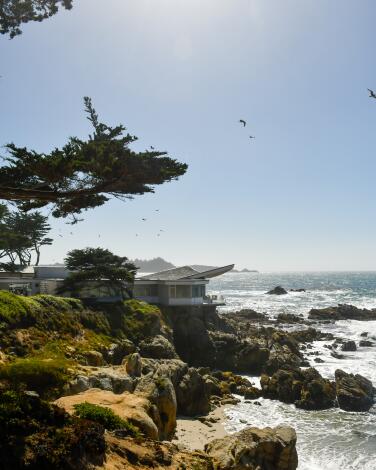
Pedal and gawk on Scenic Road
You can’t quite call most of the homes mansions because the lots are so small, but everything is just so on these places, whether they’re trying to evoke Tudor England, update Bauhaus minimalism or, in a few cases, just let you know that the owner is loaded.
The road itself is narrow, one-way and mostly residential and begins near the foot of Ocean Avenue, a few steps upslope from Carmel Beach. Even though many of these homes have absentee owners, there’s never enough parking. But there’s a walking path alongside the road, overlooking the ocean. If you walk fast, you’ll likely outpace the creeping cars of visitors who are gawking just like you.
It’s a roughly 3-mile loop. We did the drive by car, and then I went back and did it again, much more slowly, on a bike from the Mad Dogs & Englishmen bikes hop on Ocean Avenue. (Many Carmel hotels offer bikes to guests at no extra charge, including Le Petit Pali properties on Ocean Avenue and 8th Street.)
The pedal-assist ebike cost $29 for two hours and gave me a chance to linger when the mood struck — near the $29-million modernist Butterfly House, for instance, and the 90-degree turn where the road veers toward Carmel River State Beach.
As you continue, Scenic Road becomes Carmelo Street and doubles back toward Ocean Avenue, passing through another residential neighborhood that includes one lodging that might tempt your splurge impulse: the Lincoln Green Inn.
The inn, which goes back to 1925, is fronted by lush gardens and includes five cottages with kitchens. Four rent for $465 a night and up; one starts at $350. This being Carmel, the cottages are named for characters in “Robin Hood.” (When I pedaled past, there were five Porsches parked out front.)
Want a bigger pedaling challenge? Pebble Beach’s famously scenic 17 Mile Drive is 5.7 miles away.
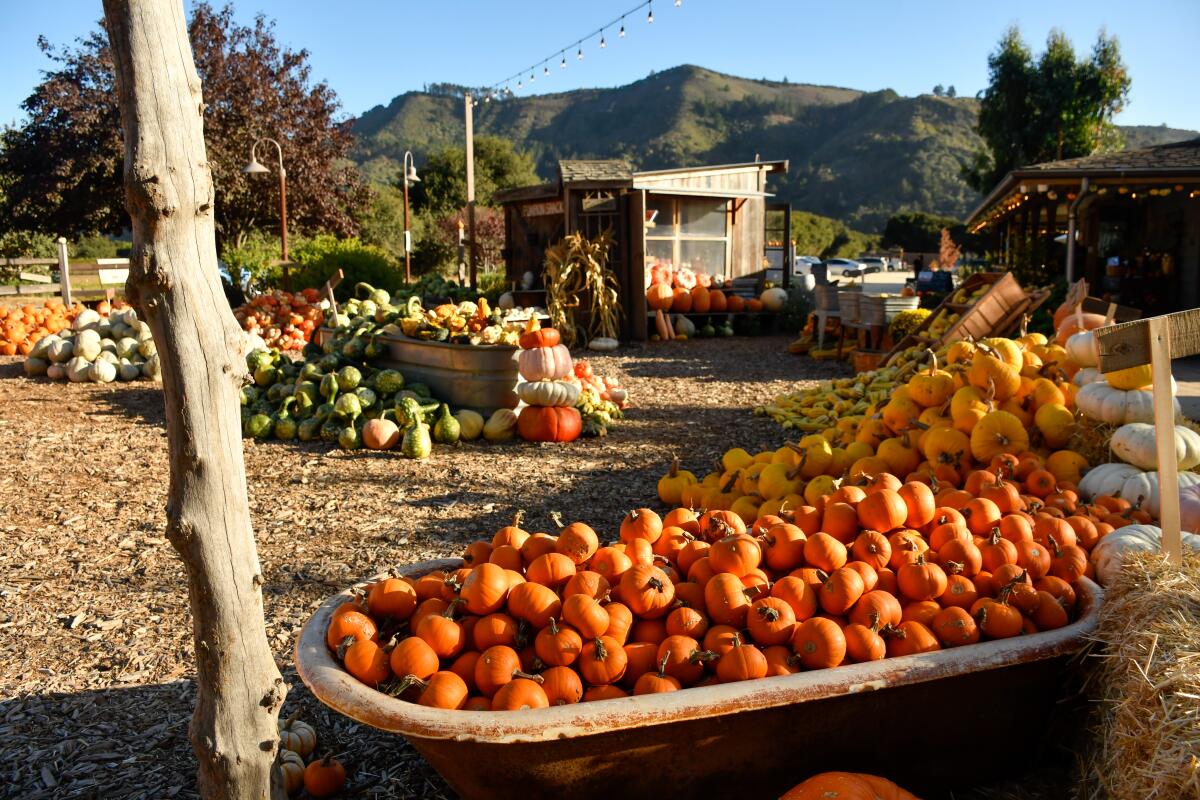
Pick berries, snip herbs and eat organic at Earthbound Farms
The property, a year-round operation, was full of pumpkins when we showed up. You can browse organic produce, flowers and specialty groceries and gifts, take an Insta photo in a massive Adirondack chair or step to the counter of the cafe (breakfast and lunch daily), which was one of the first certified organic kitchens in the U.S. when it opened in 2003.
It has baked goods, a salad bar and frozen desserts. We had a smoothie and wandered the grounds, which included a walking labyrinth, a seasonal raspberry patch (picking permitted), a cut-your-own herb garden and a tepee and play area for kids. (Pets are not invited.)
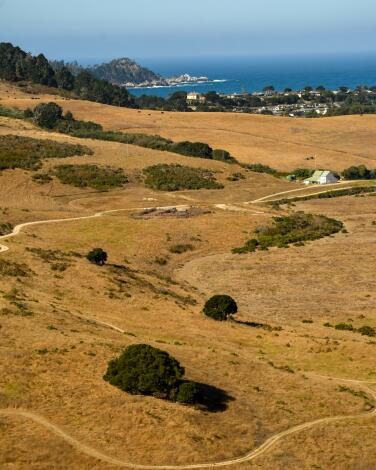
Hike from Carmel Valley to Inspiration Point
Start by driving to Palo Corona Regional Park’s Discovery Center in Carmel Valley. The trailhead for Inspiration Point is just a few steps away.
In moments, you’ll be crossing the Carmel River on a little wooden footbridge, walking under oak branches swaddled in Spanish moss, then gradually climbing about 850 feet over the course of 1.3 miles.
The park calls this a moderate to strenuous hike, not because of the trail, which is smooth and well-maintained, but because of the altitude gain. You’ll pass through a few animal-control gates (no dogs or bikes allowed).
Along the way, the oaks stop and pines begin. Through gaps in the foliage, the valley views stretch out beneath you. Blond foothills. Rocky coast. A picture-perfect barn in between.
As you hike, consider that this raw 10,000 acres, formerly known as the Palo Corona Ranch, became public only over the last 20 years, through a series of acquisitions and land-conservation measures by a team of public agencies and private nonprofits. About half of the old ranch went into Palo Corona Regional Park; the rest has joined the adjacent Joshua Creek Ecological Preserve.
At the top of the trail, Inspiration Point itself, you’ll find a picnic table waiting next to the viewpoint — a nice place to hydrate.
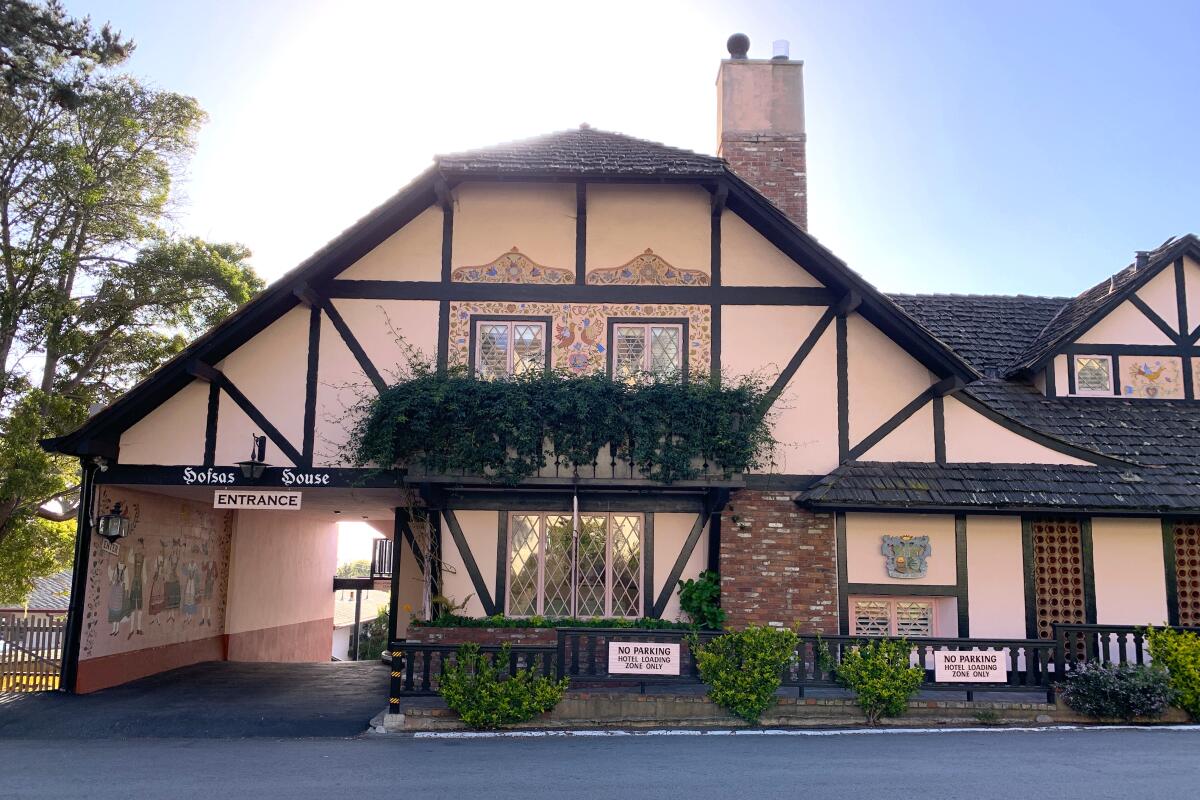
Stay at the Bavarian-inspired Hofsas House
Hofsas House was founded by Donna Hofsas in the 1940s. The charming mural she commissioned her friend Maxine Albro to paint sill greets guests today. Hofsas’ granddaughter Carrie Theis, who spent her childhood summers at Hofsas House guiding guests to their rooms, now runs the hotel as the general manager.
Rooms start at $180 per night, with continental breakfast included. (Some rooms are dog-friendly with an extra pet charge.) There’s a swimming pool that‘s heated year-round, as Carmel does get chilly in the winter months. And don’t miss this delightful detail: In the front of the hotel, there’s a poetry box filled with poems that are free for the taking.
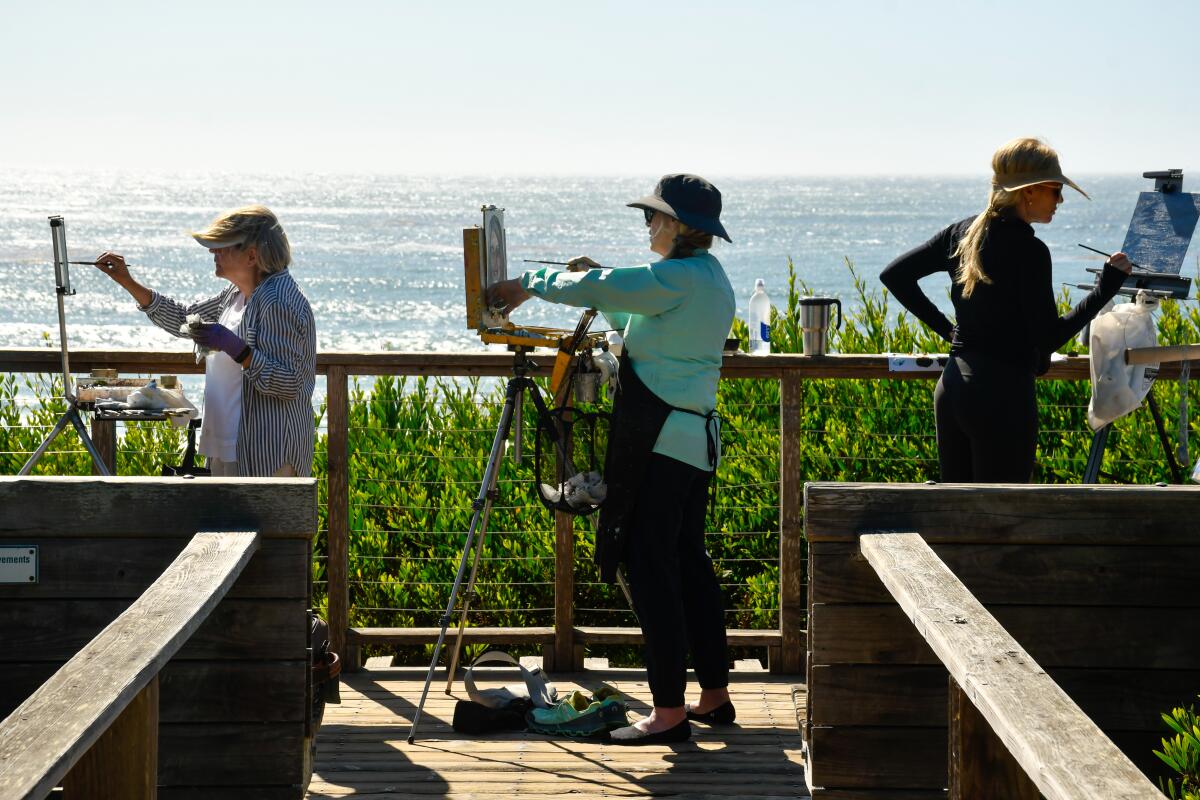
Count easels on Carmel Beach
Dogs off leash. Water cold enough to keep the surfers wearing wetsuits. Propane grilling allowed. Alcohol allowed (well, until 10 p.m.). No lifeguards.
What this beach has plenty of, however, is easels. Local and visiting painters love the foot of Ocean Avenue, where they try to catch the beach scene on paper or canvas.
On the day I stepped onto the sand, eight painters had gotten there first. Most had taken up positions on high ground with a broad view, leaving sunbathers and beach-walkers plenty of room. But three of the painters had taken over a wooden observation deck, leaving no room for anyone else. It’s the Wild West on the beach, I’m telling you.
Still, just everyone was smiling, including the dogs. Even if you never get your toes wet, it’s well worth it to step down to the water’s edge, glimpse the Pebble Beach waterfront courses to the north, then turn to see surf-lashed rocks at the southern end of Carmel Bay.
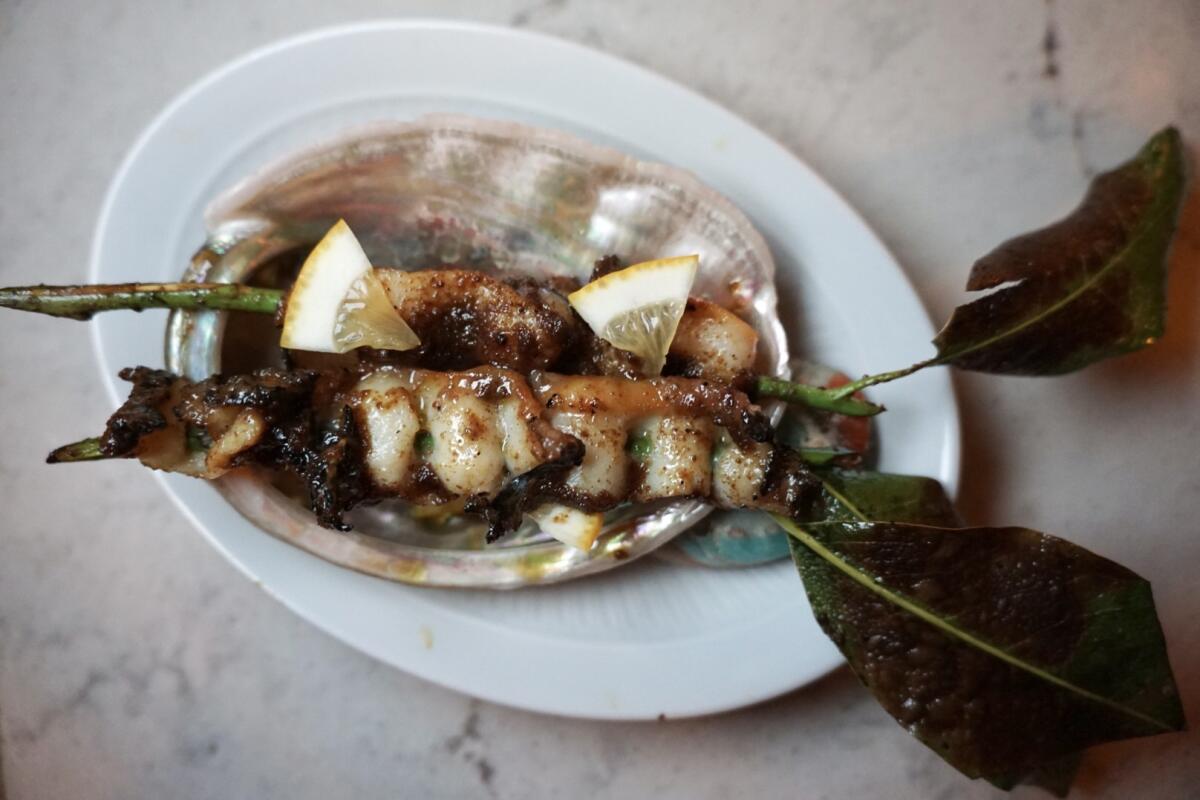
Book a table at the seafood-centric Chez Noir
Chez Noir’s menu is seafood-heavy, with ingredients sourced from the Monterey Peninsula. The restaurant recently switched from an a la carte menu to serving exclusively a four-course tasting menu for $125 per person.
The bar program is headed by Ashley Havens, who worked with Johnny and Monique Black at Pineapples & Pearls, and she’s committed to making it more sustainable. Case in point: When Chez Noir’s kitchen was serving sweet corn agnolotti this past summer, she took the cobs to infuse some bourbon and used it for the Corn Cob Old Fashioned.
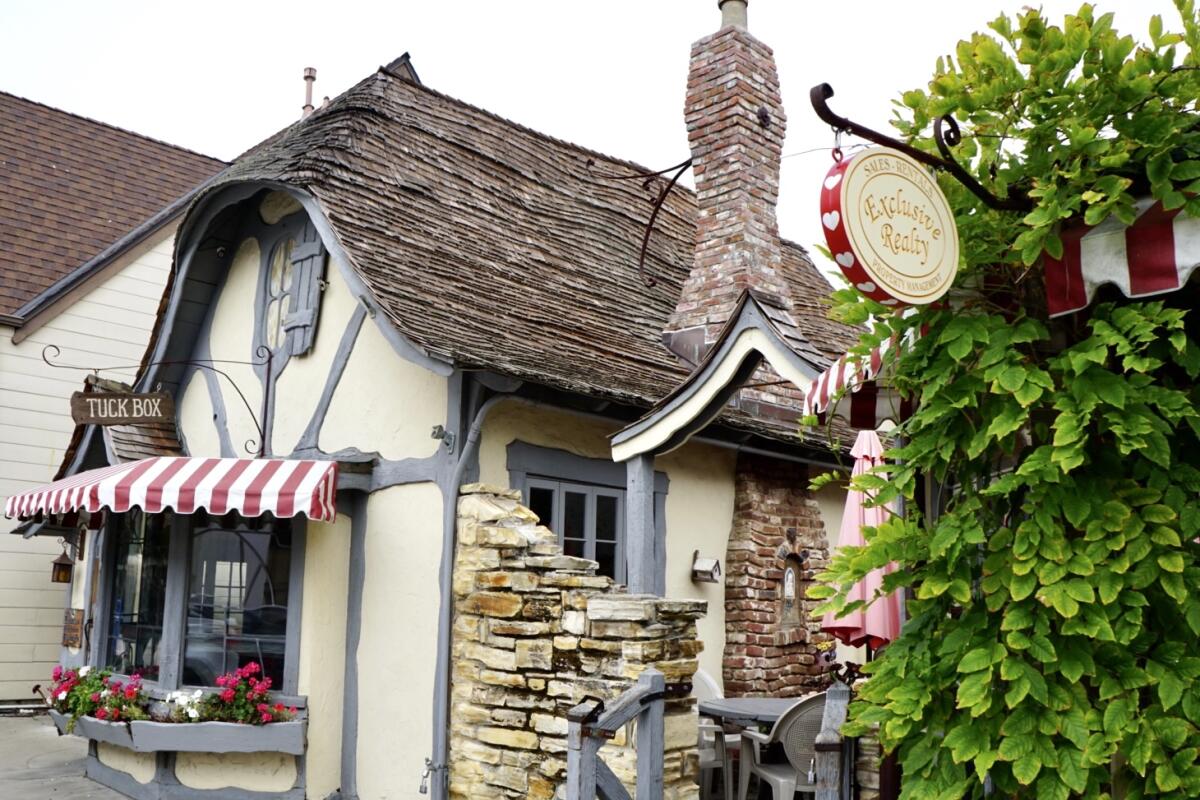
See Hugh Comstock's fairytale cottages, including Hansel, Gretel and Tuck Box
Residents then asked Comstock to help them build fairy-tale cottages of their own. Even after Comstock’s death, his designs continued to inspire new ones. These cottages are scattered around town — head to the Harrison Memorial Library at Ocean Avenue and Lincoln Street to grab a map.
Remember, most of these cottages are private residences, so admire them from a respectful distance.
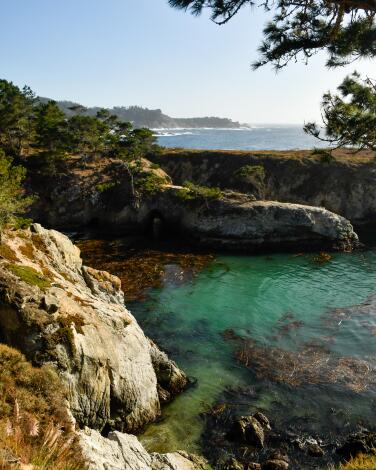
See green (and sea lions) at Point Lobos
Like a lot of people, I like to start by driving to the end of the park’s main road, parking and strolling around the 0.8-mile loop trial through China Cove and Bird Island.
No matter what’s happening in the sky, the waters of the cove always seem to glow an eerie green. From there, if I have time, I move on to Weston Beach (named for photographer Edward Weston, who haunted these shores for years) and the Cypress Grove Trail. (The Moss Cove Trail has been closed since winter’s storms.)
As you check out the birds, rocks and greenery, bear in mind that Native people gathered here for thousands of years. By the late 19th century, the territory’s human diversity had multiplied to include Chinese fishermen, Portuguese whalers and Japanese abalone divers. It’s been part of the state parks system since 1933, and the waters offshore (popular with divers) are part of the Monterey Bay National Marine Sanctuary.
Arriving on a weekday in fall, we had no trouble parking. But on summer days, the park often reaches its 150-car capacity, so it’s wise to come early.
The reserve is open 8 a.m. to 7 p.m. daily, with last entry at 6:30 p.m. The fee is $10 per car, plus an additional $2 for a map/brochure. No dogs (except service animals), no drones, no camping, no alcohol, no bikes on trails, no collecting shells or rocks.
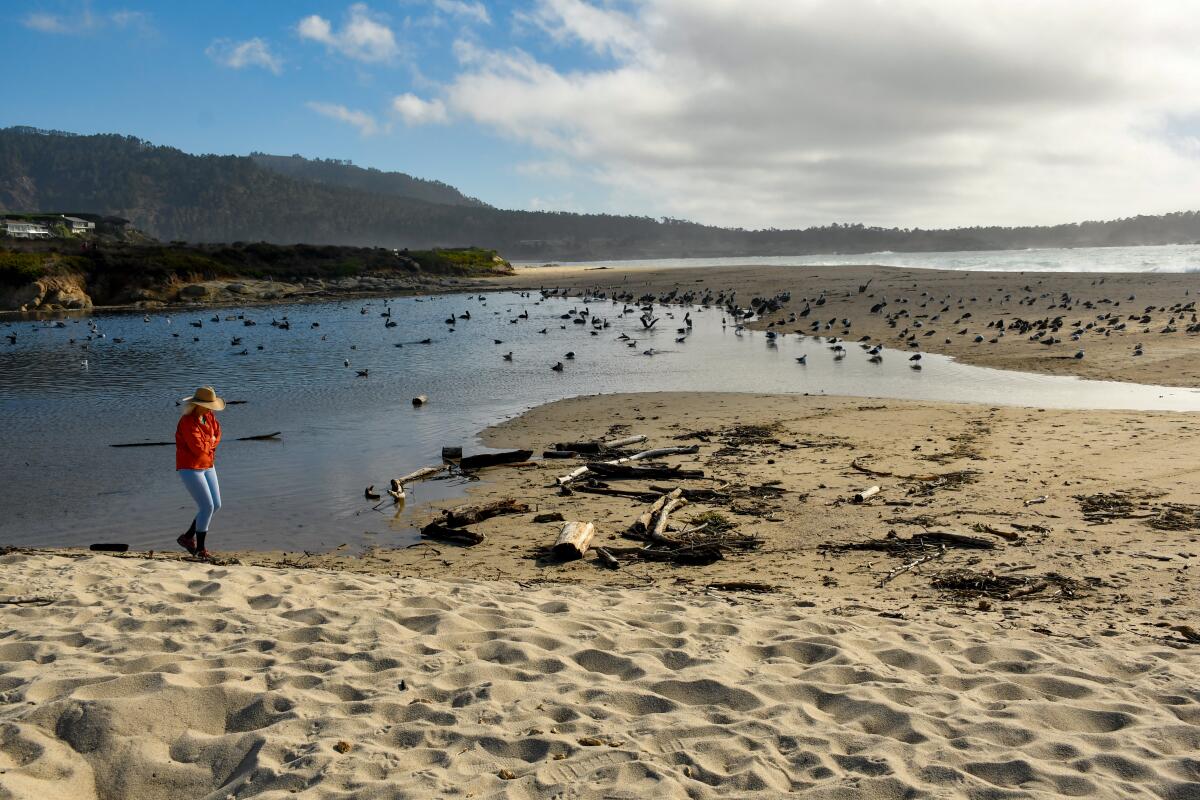
Watch birds, river and ocean collide at Carmel River State Beach
Wherever you look or walk, it’s mesmerizing.
This beach has its own parking lot, and it’s right along the loop route for people driving (or walking or pedaling) Scenic Road. It’s also popular with local dog-walkers. Yet somehow, it never seems as crowded and busy here. Which is a shame, because this is a spot where natural Carmel dominates man-made Carmel.
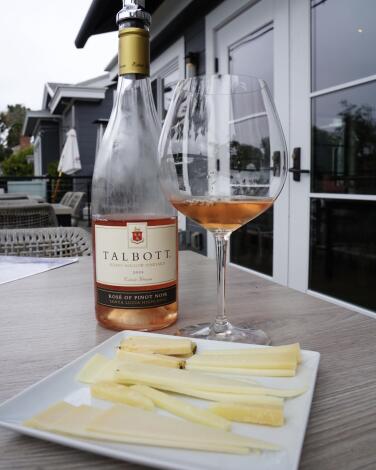
Taste Burgundian-style wines at Talbott Vineyards
At its tasting room in Carmel-by-the-Sea, Talbott offers tastings of its estate pinot noirs and chardonnays that showcase the different climate influences within their vineyards. The Legacy Flight comes with a glass of its new sparkling wine and a taste of five of Talbott’s wines, paired with cheeses sourced from the local cheese shop (conveniently called the Cheese Shop).
Check out more wine tasting rooms in town with Carmel-by-the-Sea’s official Wine Walk mobile guide.
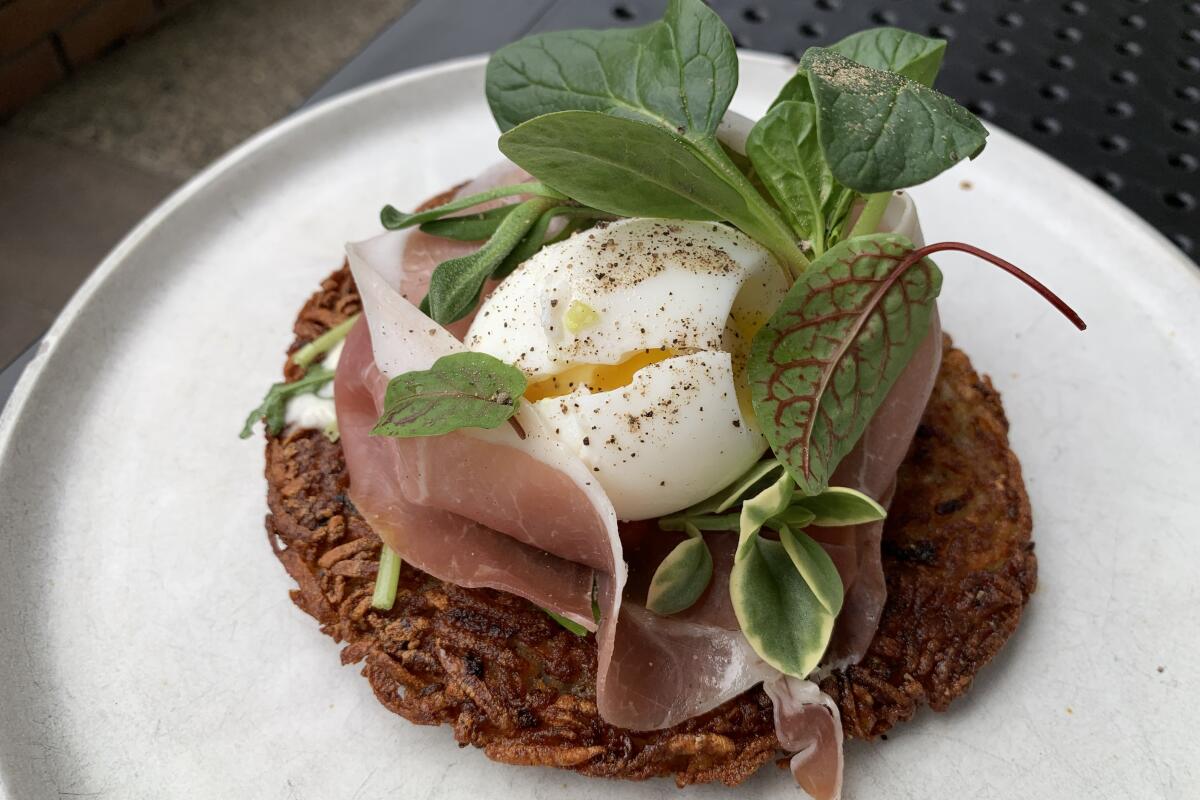
Taste California comfort cuisine at Stationæry
The Carnazzos grew up in the area, with family working as fishermen in Monterey Bay and ranchers in Carmel Valley. The two met in high school and worked in Los Angeles after getting married (Anthony was the opening general manager of Handsome Coffee Roasters). They eventually moved back home when they had their first child and opened the Stationæry in 2018.
The restaurant serves a seasonally driven menu of what the Carnazzos call California comfort cuisine, sourcing seafood and dairy locally. One of the staple dishes that sells out every day is the potato pancake. Shredded potatoes are pan-fried until crispy and the toppings change with the season (the current setup features smoked Mt. Lassen trout with gribiche and crème fraîche).
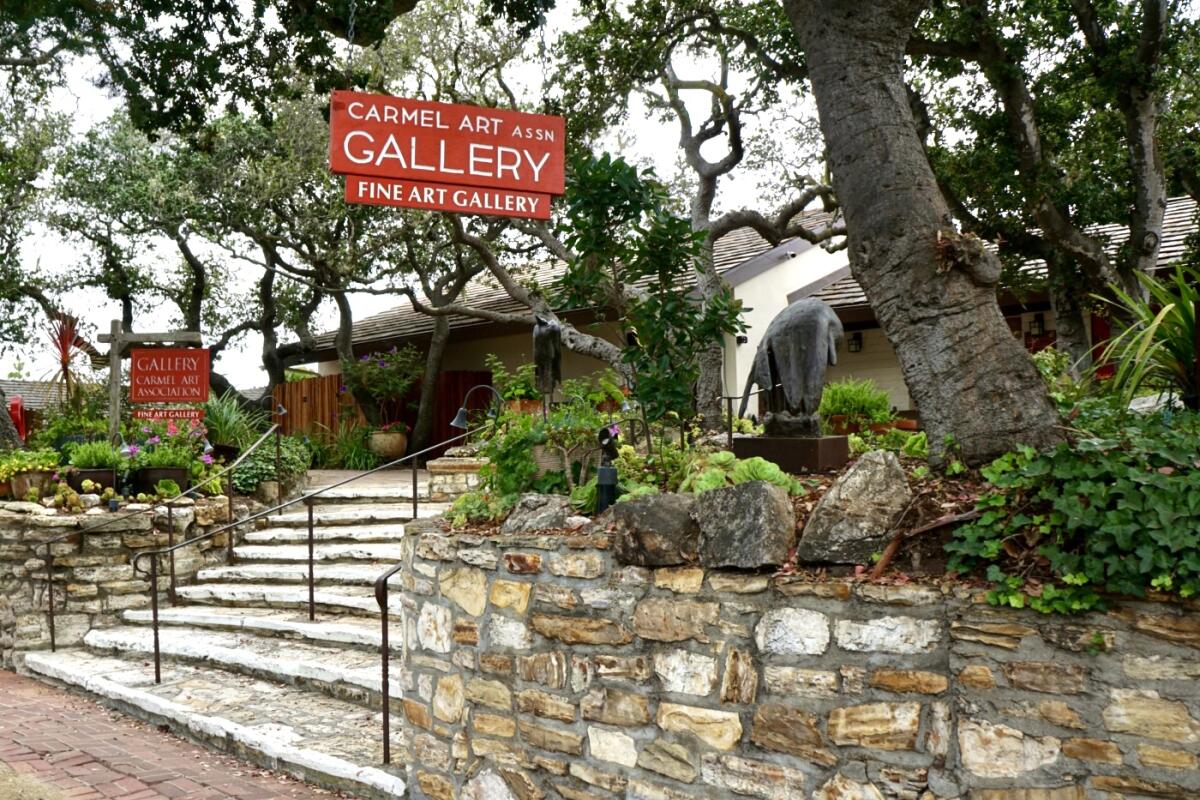
Walk through Carmel Art Association, the town's oldest gallery
The association’s current gallery location sits atop a set of stone steps on Dolores Street, with a sculpture garden welcoming visitors out front. The gallery represents around 100 artist members who live in the Monterey Peninsula, and exhibits rotate monthly.
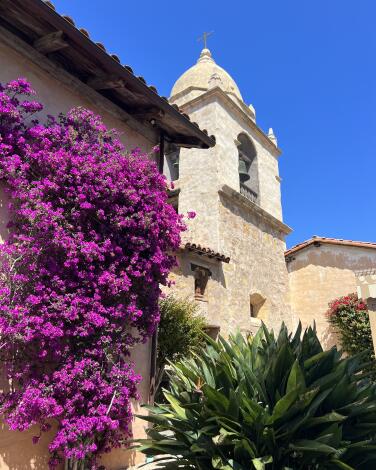
See the Carmel Mission and its original bell tower
The Spanish-Moorish structure was constructed using stone from the nearby Santa Lucia Mountains. A national historic landmark, this is the only Spanish mission in California that still has its original bell tower and bell — one of the cracked bells is displayed in the central courtyard.
The mission is a serene spot to visit, with a recently restored courtyard that features the mission’s original fountain and a well-manicured garden. There are also various exhibits on the ground, along with artifacts and information about the people who lived and worked in the mission during its early days.
Admission to Carmel Mission is $13 per person. The mission is still an active parish, and the basilica may be in use for services or weddings.
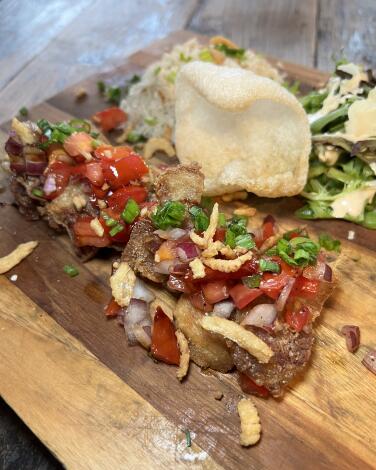
Sample Filipino-Indonesian family recipes at Edwin’s Kaona
The menu returns to the family’s Filipino roots and fuses with Indonesian cuisine (Edwin’s work often brought him to Indonesia, and Dexter lived there for 18 years). Dexter serves up his parents’ recipes, combined with his own — you’ll find lumpia shanghai, lechon kawali and kare kare alongside Balinese fried chicken. There are fusion dishes as well, such as Indonesian-style prawns prepared with coconut and sambal served over fettuccine pasta.
There’s usually live music in the evenings, and Mondays are open-mic nights.
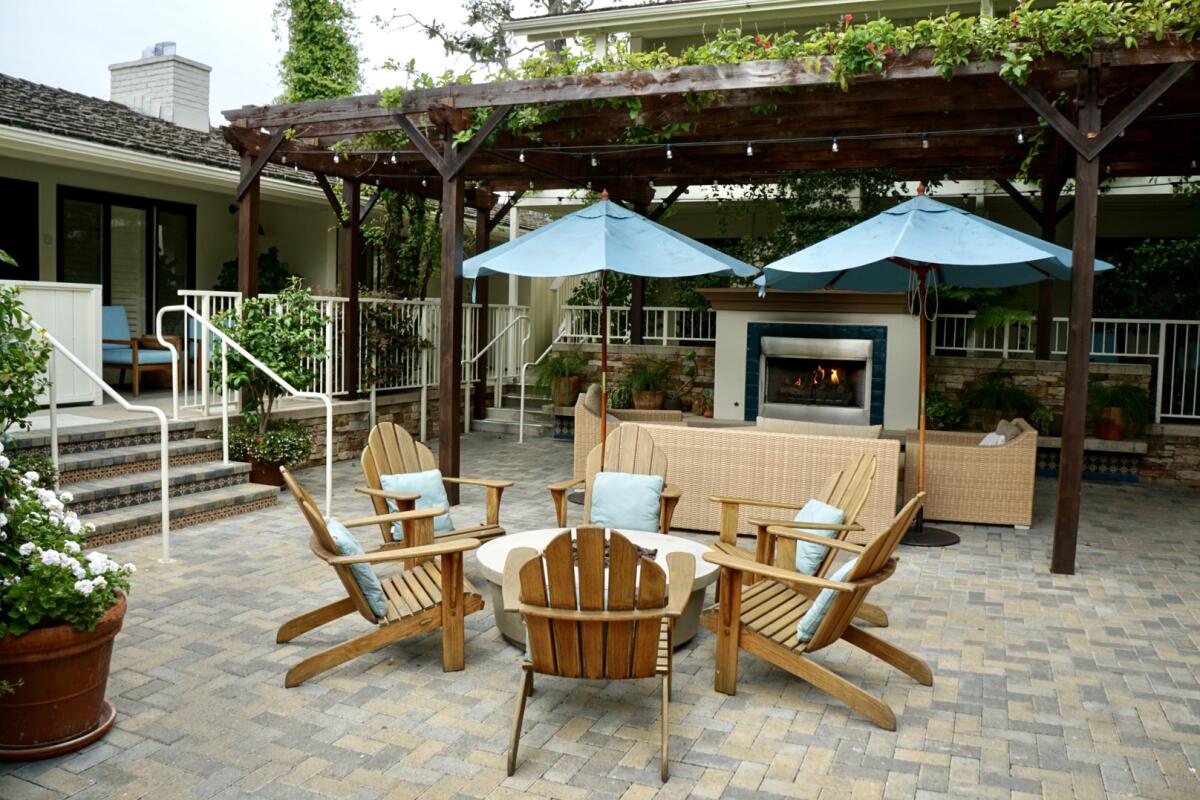
Cozy up in an Adirondack chair around the fire pit at Hotel Carmel
The lounge and breakfast area next to the lobby is set up like a comfortable living room, with a white wraparound table by the window. Free breakfast is provided with your stay, and includes Champagne to get those vacation days started right. The hotel offers wine or sangria in the early evening, along with freshly baked chocolate chip cookies.
There’s no pool at Hotel Carmel, but there is a courtyard with a fire pit surrounded by Adirondack chairs for nighttime chats, along with a hot tub. Rooms start at $215 per night.
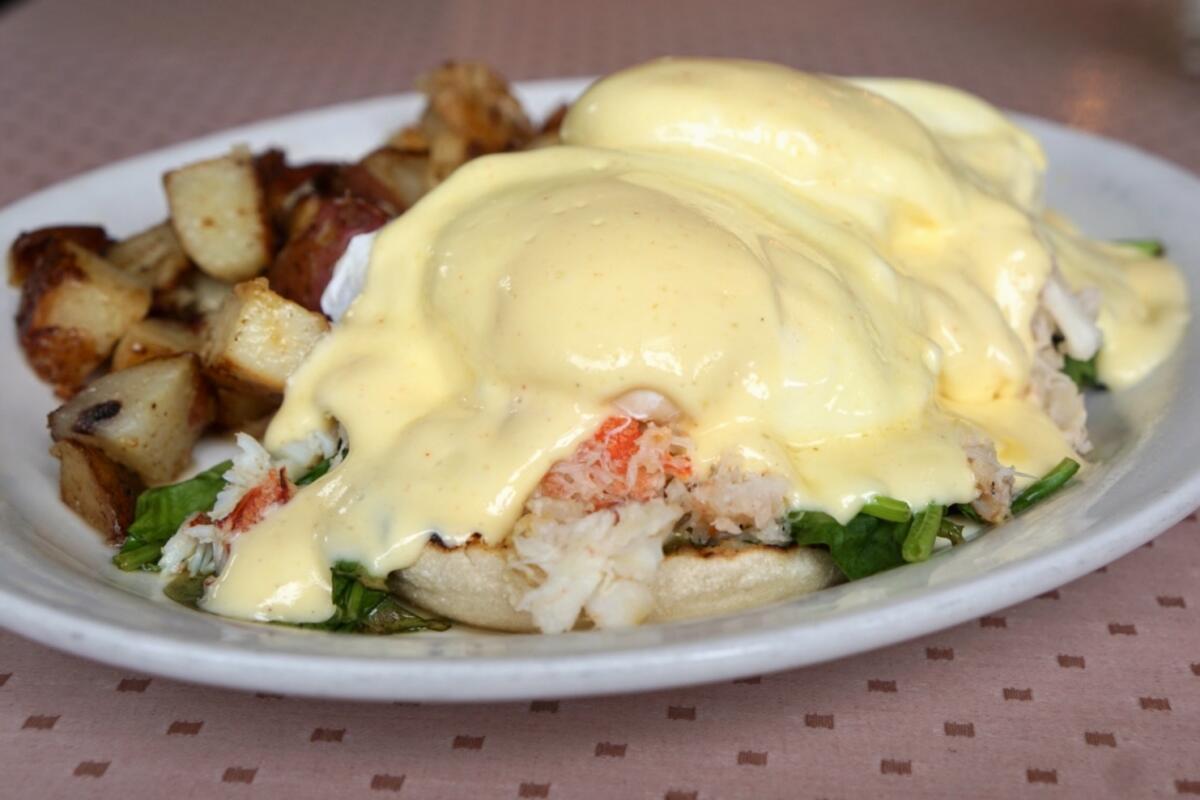
Order an eggs Benedict any style at Katy’s Place
Eggs Benedict aside, it’s hard to go wrong at Katy’s. The breakfast menu is extensive, with Swedish pancakes, biscuits and gravy, corned beef hash and any other dishes you may desire.
This place is cash-only, and the prices are not particularly cheap, so be sure to bring enough money.
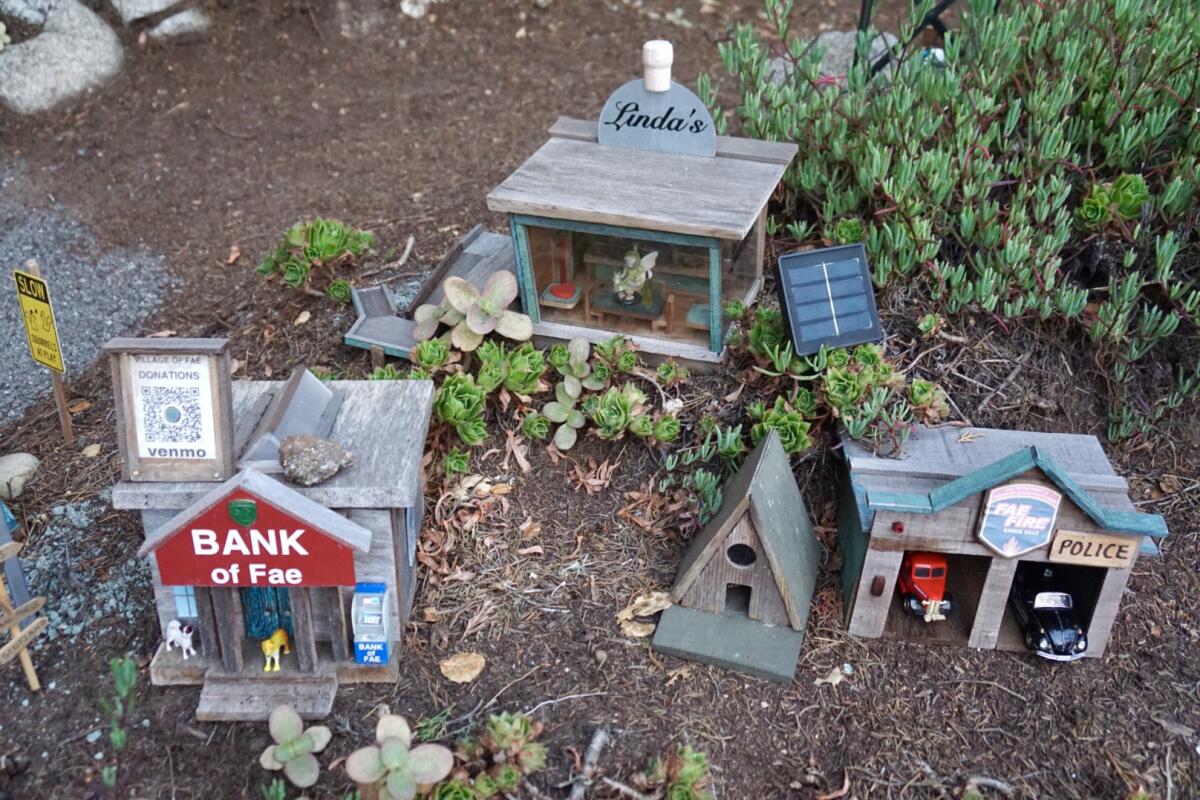
Visit Village of Fae, a village for elves and fairies
The details put into this tiny village are quite impressive, and it’s fun to explore and read through the signs. Inside the village, the faes have their own police station, theater and even their own whiskey distillery. At the bank, there’s a QR code for Venmo donations, should anyone want to support this fun project. It’s easier to spot all the details in daylight, but there is enough lighting at night as well.
Subscriber Exclusive Alert
If you're an L.A. Times subscriber, you can sign up to get alerts about early or entirely exclusive content.
You may occasionally receive promotional content from the Los Angeles Times.
